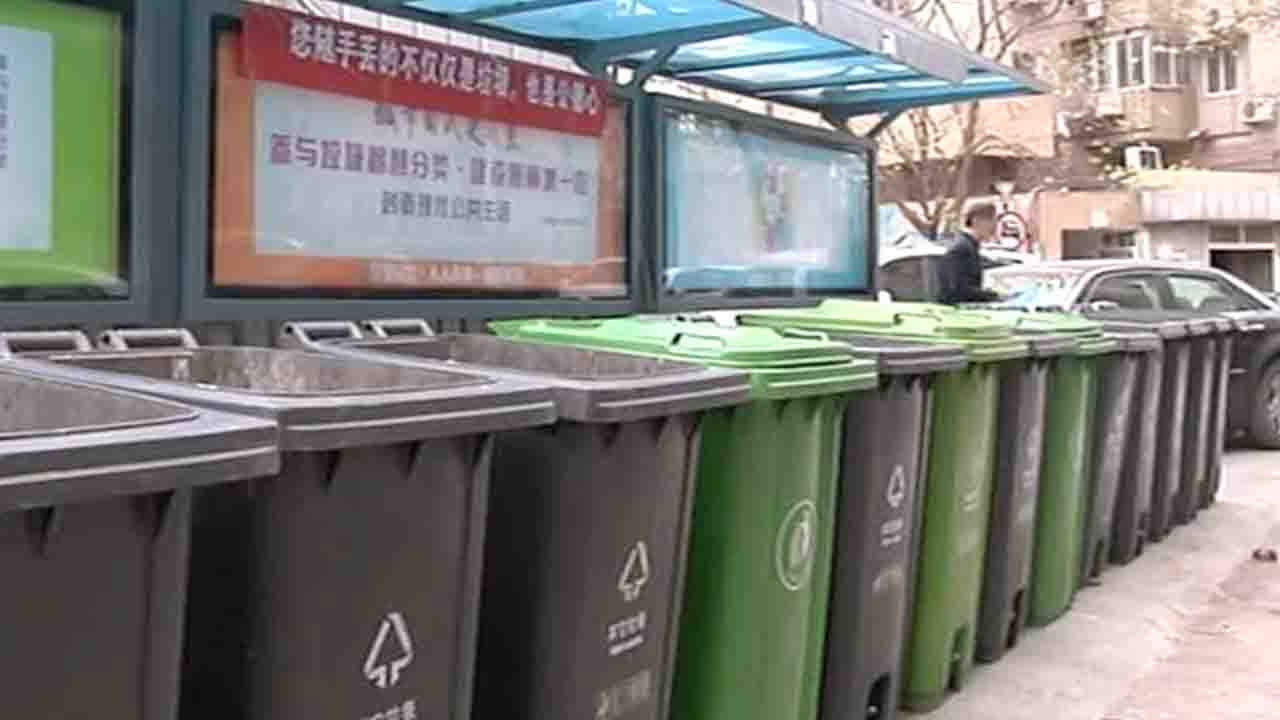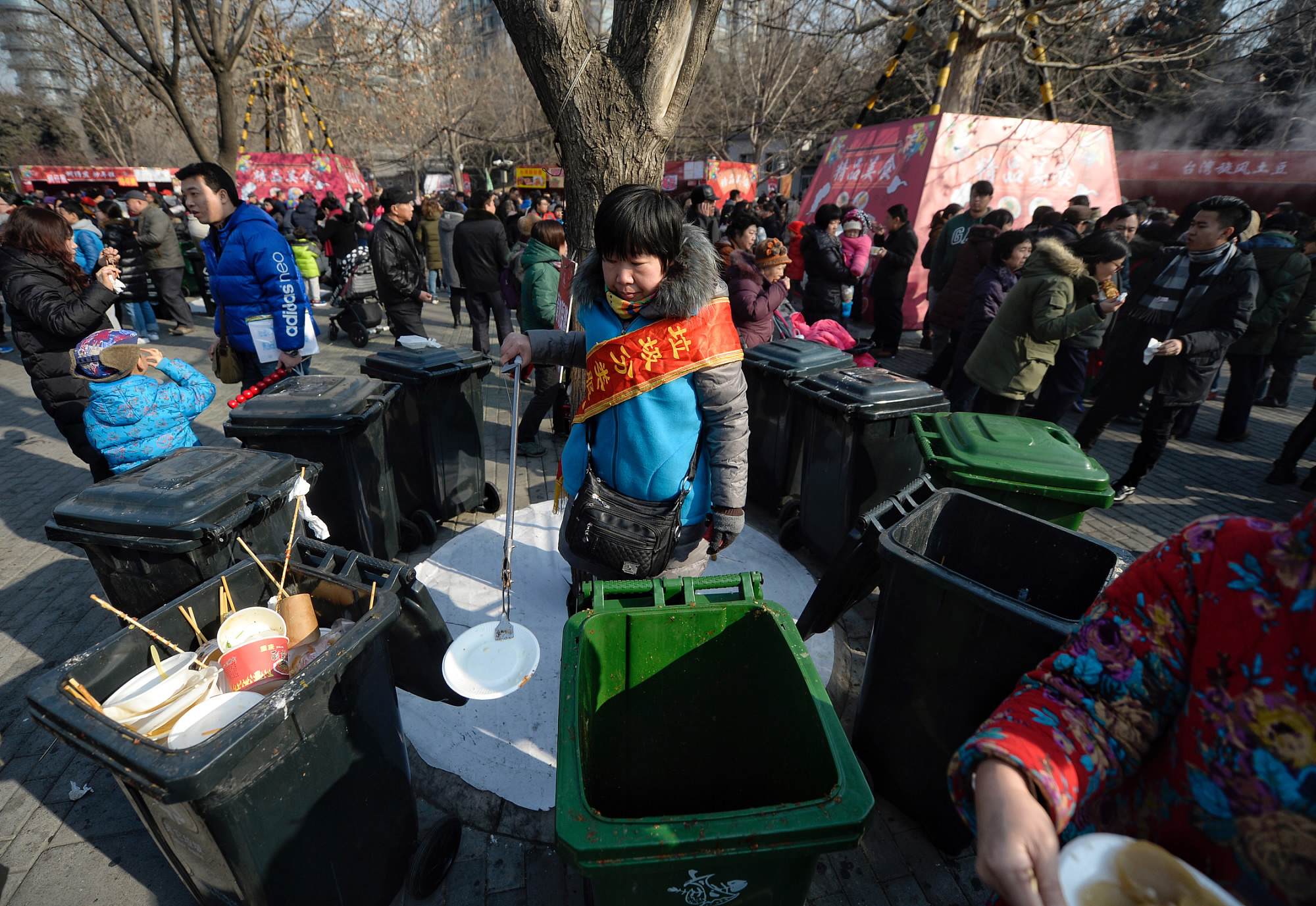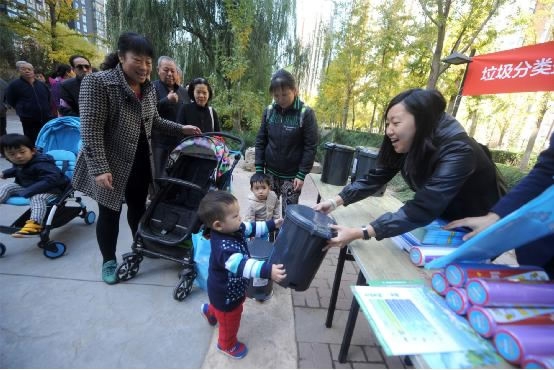
China
22:48, 22-Apr-2017
Beijing ramps up efforts in garbage classification

By CGTN’s Wang Fan
Beijing is stepping up its efforts in garbage sorting, with the help of new technologies. In some residential communities, people can stick a QR code on their garbage before discarding it in designated bins.
When sanitation workers swipe the codes, the people earn credits that can be exchanged for rice, cooking oil and other household products.
This bonus scheme has been in place for over a year. Although progress has been made, challenges remain.
"The system is relatively easy to use," says He Liwen, a resident in Fangzhuang, one of the pilot districts in Beijing.
"There has to be a process of getting used to it," says He.

Garbage-sorting volunteer at Changdian Temple Fair on January 31, 2017. /CGTN Photo
Garbage-sorting volunteer at Changdian Temple Fair on January 31, 2017. /CGTN Photo
Every month, a total of 65 machines in Fangzhuang recycle approximately 10 tons of household waste, which are later classified into metal, glass, paper, plastic, fabric and electronics. The new system has been installed in nearly 400 residential areas in Beijing, with more than 54,000 registered users.
"The waste will be transferred to our packaging station in the suburbs. It will then be sorted and transported to different recycling factories," says Zhang Geng, a supervisor from Beijing Environment Sanitation Engineering Group who is in charge of garbage sorting in Fangzhuang.
But as the new rewards system mainly includes recyclable waste, non-recyclable garbage is left behind. Some say the logos on the trash cans have become too blurry to read and there isn’t enough promotion regarding garbage sorting.
"Even if we classify our garbage, when the trash collector comes, he just dumps it all in one truck. So what's the point of sorting everything?" says Dong Yongxing, a resident in Fangqunyuan No.2 residential area.
Dong Fengshan, a garbage collector working for Beijing Environment Sanitation Engineering Group, picks up household waste in Fangzhuang about 10 times a day. He mixes the kitchen waste and other non-recyclable garbage before taking it to the disposal site.

Garbage-sorting promotional campaign in Donghu district on October 28, 2015. /CGTN Photo
Garbage-sorting promotional campaign in Donghu district on October 28, 2015. /CGTN Photo
"We don't classify them," he says. "I have no idea about garbage sorting."
Zhang Geng says they are making efforts to prohibit such behavior from garbage men. He says different carts have been assigned to pick up different types of non-recyclable garbage.
But a lack of public awareness is certainly an issue.
"Many residents in our neighborhood are only short-term tenants, they don’t even throw garbage into trash cans, let alone sorting them," says Li Youzhi, a resident in Fangqunyuan No.2 residential area.
Zhang Geng says every month promotional campaigns are launched in communities.
Last month, Beijing's smart garbage classification system officially included non-recyclable waste in some of the pilot areas. Local authorities have decided to expand the mechanism to an additional 300 residential communities and cover one million registered users this year. However, it remains to be seen whether the rewards scheme will boost public confidence in garbage sorting.
5km

SITEMAP
Copyright © 2018 CGTN. Beijing ICP prepared NO.16065310-3
Copyright © 2018 CGTN. Beijing ICP prepared NO.16065310-3